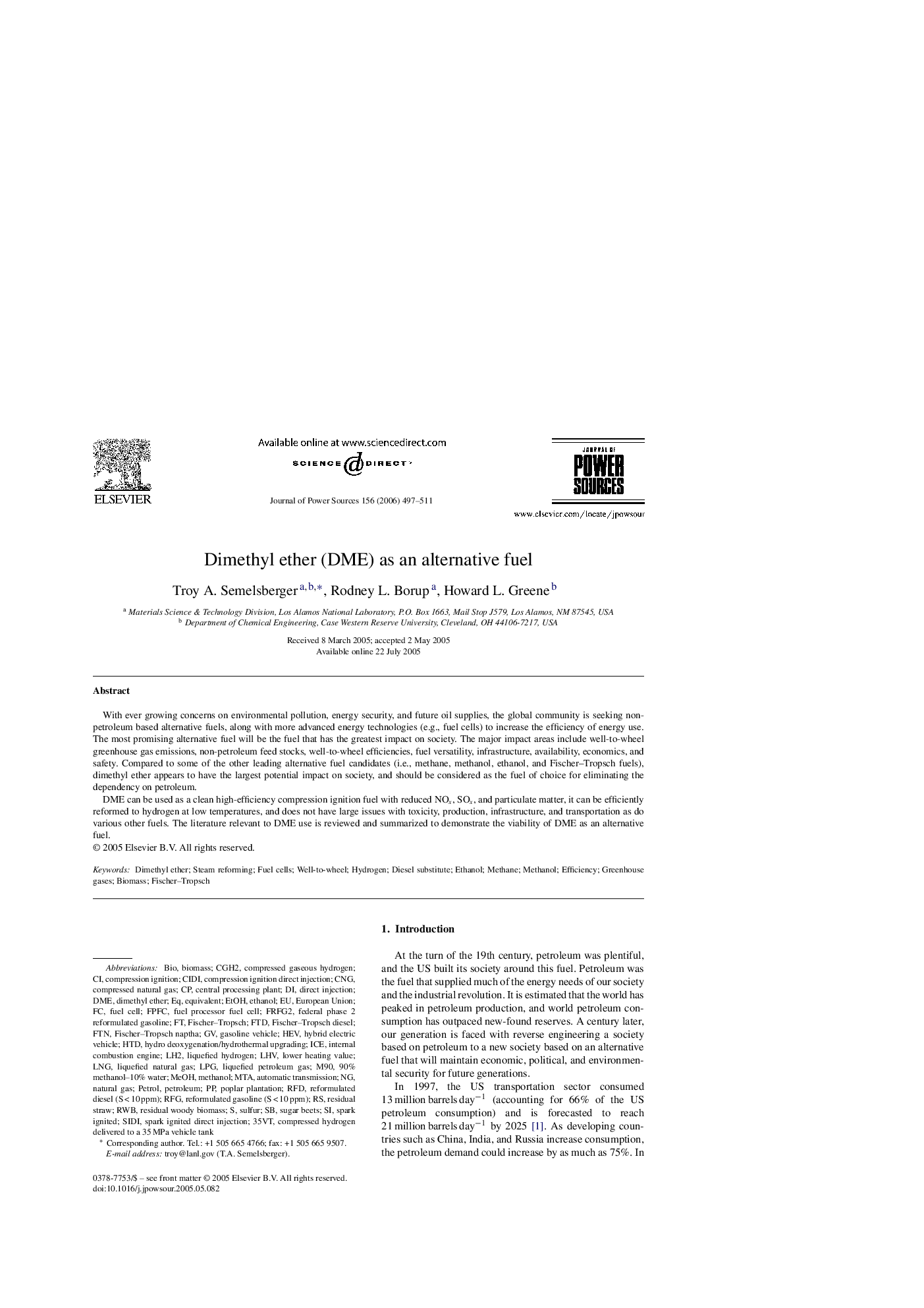| Article ID | Journal | Published Year | Pages | File Type |
|---|---|---|---|---|
| 1295054 | Journal of Power Sources | 2006 | 15 Pages |
With ever growing concerns on environmental pollution, energy security, and future oil supplies, the global community is seeking non-petroleum based alternative fuels, along with more advanced energy technologies (e.g., fuel cells) to increase the efficiency of energy use. The most promising alternative fuel will be the fuel that has the greatest impact on society. The major impact areas include well-to-wheel greenhouse gas emissions, non-petroleum feed stocks, well-to-wheel efficiencies, fuel versatility, infrastructure, availability, economics, and safety. Compared to some of the other leading alternative fuel candidates (i.e., methane, methanol, ethanol, and Fischer–Tropsch fuels), dimethyl ether appears to have the largest potential impact on society, and should be considered as the fuel of choice for eliminating the dependency on petroleum.DME can be used as a clean high-efficiency compression ignition fuel with reduced NOx, SOx, and particulate matter, it can be efficiently reformed to hydrogen at low temperatures, and does not have large issues with toxicity, production, infrastructure, and transportation as do various other fuels. The literature relevant to DME use is reviewed and summarized to demonstrate the viability of DME as an alternative fuel.
